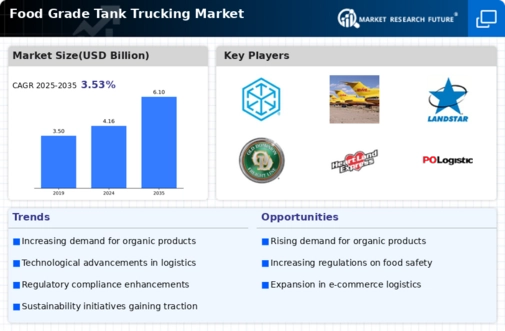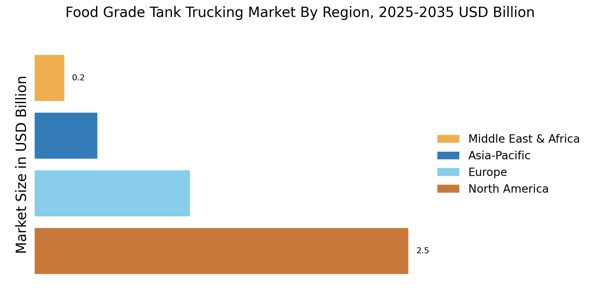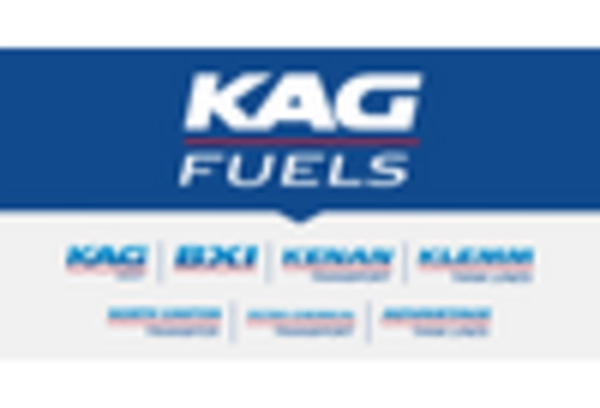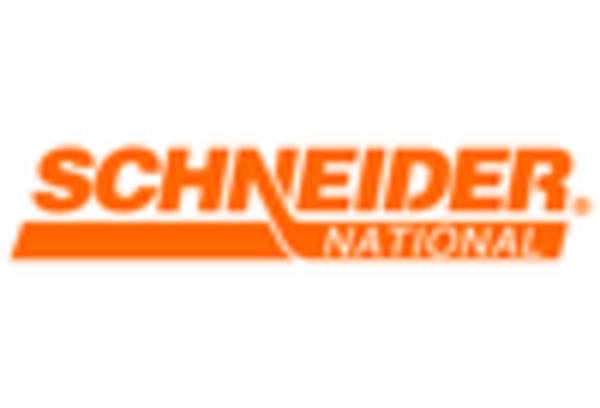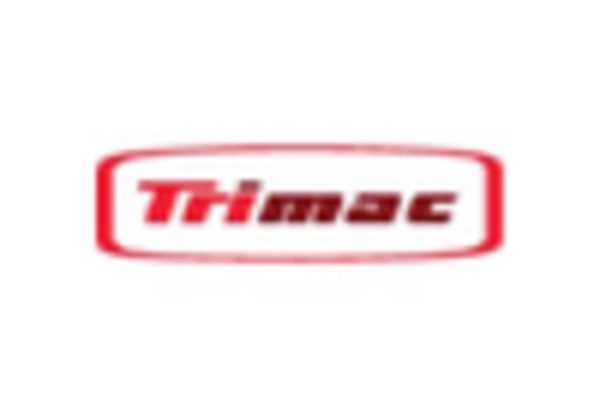Rising Demand for Food Products
The increasing global population and changing dietary preferences are driving the demand for food products, which in turn fuels the Food Grade Tank Trucking Market. As consumers become more health-conscious, there is a notable shift towards organic and natural food products. This trend necessitates efficient transportation solutions to ensure the timely delivery of perishable goods. According to recent data, the food and beverage sector is projected to grow at a compound annual growth rate of approximately 5% over the next few years. Consequently, the Food Grade Tank Trucking Market is likely to experience heightened activity as logistics providers adapt to meet the rising demand for safe and efficient food transportation.
Focus on Food Safety Regulations
The emphasis on food safety regulations is a critical driver for the Food Grade Tank Trucking Market. Governments and regulatory bodies are implementing stringent guidelines to ensure the safe transportation of food products. Compliance with these regulations is essential for logistics providers, as non-compliance can lead to severe penalties and loss of reputation. The Food Grade Tank Trucking Market must adapt to these evolving standards, which may include enhanced training for drivers and improved sanitation practices for tank trucks. As the regulatory landscape continues to evolve, logistics companies are likely to invest in upgrading their fleets and processes to meet these requirements, thereby driving market growth.
Expansion of E-commerce in Food Sector
The rapid expansion of e-commerce platforms specializing in food products is reshaping the Food Grade Tank Trucking Market. As more consumers opt for online grocery shopping, the need for reliable and efficient logistics solutions becomes paramount. E-commerce companies are increasingly investing in their supply chains to ensure that food products are delivered fresh and on time. This shift is expected to drive the demand for food-grade tank trucks, which are essential for transporting liquid food products such as oils, juices, and dairy. The Food Grade Tank Trucking Market is likely to benefit from this trend, as logistics providers enhance their capabilities to cater to the evolving needs of e-commerce in the food sector.
Technological Innovations in Logistics
Technological advancements in logistics are significantly impacting the Food Grade Tank Trucking Market. Innovations such as real-time tracking systems, automated routing, and temperature-controlled transportation are enhancing the efficiency and safety of food transportation. These technologies not only improve operational efficiency but also ensure compliance with food safety regulations. The integration of Internet of Things (IoT) devices allows for better monitoring of food products during transit, reducing spoilage and waste. As logistics companies adopt these technologies, the Food Grade Tank Trucking Market is poised for growth, with increased investment in modern fleet management systems and enhanced service offerings.
Sustainability and Environmental Concerns
Sustainability initiatives are increasingly influencing the Food Grade Tank Trucking Market. As consumers become more environmentally conscious, there is a growing demand for sustainable transportation solutions. Logistics providers are exploring eco-friendly practices, such as using alternative fuels and optimizing routes to reduce carbon emissions. This shift towards sustainability not only aligns with consumer preferences but also helps companies comply with environmental regulations. The Food Grade Tank Trucking Market is likely to see a rise in demand for green logistics solutions, as companies strive to enhance their sustainability profiles while maintaining efficient food transportation.


